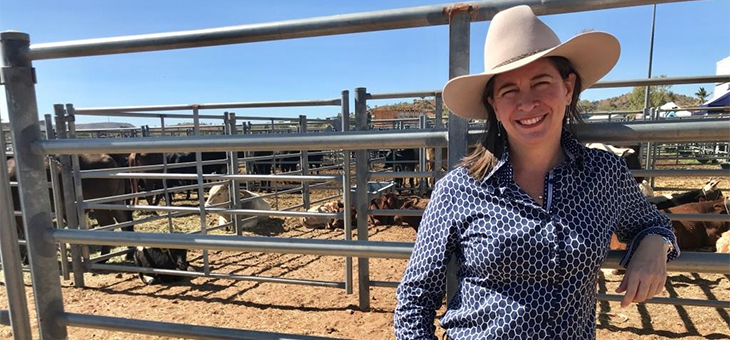Vegan products muscling in on the meat market have triggered a Senate inquiry into the naming of plant-based food fit for the barbecue.
Butcher-turned-senator Susan McDonald has launched a Senate inquiry into ‘Definitions of Meat and Other Animal Products’.
“Just like winemakers wanting exclusive use of some wine names, I feel strongly that our Aussie red meat industry should have sole use of product names that have meant only one thing for centuries,” the Liberal National Party senator for Queensland said.
“Australia’s red meat industry has been upset by these products being called ‘sausages’, ‘bacon’ and ‘meat’ and I believe they have a fair argument,” Senator McDonald said, calling it an intellectual property issue.
“It’s up to makers of non-meat products to come up with their own distinct terms instead of trading off long-established names of animal proteins.”
Read more: Are meat substitutes good for us?
Parliament’s rural affairs committee will investigate issues including meat producers suffering “potential impairment” from “plant-based or synthetic protein brands”, the use of livestock images on packaging for non-meat products, and the “health implications” of those foods, including any additives or chemicals, The New Daily reports.
Vegan products have been targeted by the meat industry as highly processed and stacked with salt and sugar, while the meat industry has long been under fire for its land clearing, methane production, water usage and cruelty to animals.
But the Alternative Proteins Council (APC) said both meat and plant-based protein would be needed to feed 10 billion mouths in the near future and the inquiry should not view the matter as “conventional proteins versus new proteins”, because this suggested that new protein industries would grow at the expense of more conventional industries.
“We agree with the Ministerial Forum on Food Regulation that the current regulations for labelling via the Food Standards Code and Australian Consumer Law are fit for purpose,” the council said.
“Companies producing plant-based alternatives use terms like ‘sausages’ to describe their product’s format and utility, along with clear qualifiers like ‘plant-based’ to clearly communicate its ingredients; it’s a commonsense and evidence-based approach.”
But Cattle Council of Australia (CCA) president Markus Rathsmann said clarity was needed.
“CCA has no problem with alternative protein products, but they need to be honest about their ingredients,” he said. “This inquiry will take a good, hard look at whether it’s fair to call a product something like ‘no beef, beef’ when there’s no beef in it.”
Plant-based meat products are projected to generate nearly $3 billion in domestic consumer sales by 2030 and 6000 full-time jobs, contributing to a forecast $100 billion food and fibre sector by 2030.
Read more: Things that happen when you overhaul your diet
With those sorts of numbers, Nick Hazell, CEO of v2food, said there was enough room for both at the table and plant-based protein producers were working towards “voluntary guidelines”.
“These guidelines, consistent with Australian Consumer Law, aim to ensure both consumers and manufacturers have guidance for clear and accurate labelling,” he told The New Daily.
NSW Farmers had a two-way bet, saying they supported the inquiry but wanted to work alongside alternative protein companies as they presented “a growing market opportunity for farmers”.
Last month, Texas approved a bill to ban vegan and cell-cultured food labels referencing their meat or dairy counterpart.
The bill defines ‘beef’ and ‘chicken’ as “any edible portion of a formerly live and whole cattle/chicken carcass, not derived by synthetic or artificial means”.
The label ‘meat’ must not contain any lab-grown, cell-cultured insect or plant-based food products.
The European Union already prohibits the use of terms including ‘almond milk’ or ‘vegan cheese’ but a stricter ‘dairy ban’ seeking to outlaw terms such as ‘yoghurt-style’ or ‘cheese-alternative’ was rejected. The amendment also sought to ban vegan packaging similar to animal products such as milk cartons or butter blocks.
One member of the European Parliament blasted the idea.
“We know how to read labels and distinguish cow’s milk from a plant-based milk,” said Portugal’s Francisco Guerreiro.
Read more: Foods you should eat in your 50s, 60s and beyond
He may be on the money, as research conducted by Cornell University found “consumers are no more likely to think that plant-based products come from an animal if the product’s name incorporates words traditionally associated with animal products than if it does not”.
The research even argued that “omitting words that are traditionally associated with animal products from the names of plant-based products actually causes consumers to be significantly more confused about the taste and uses of these products”.
Do you believe plant-based products should be labelled ‘meat’, ‘sausage’ and ‘burger’? Add your thoughts to the comments section below.
If you enjoy our content, don’t keep it to yourself. Share our free eNews with your friends and encourage them to sign up.

